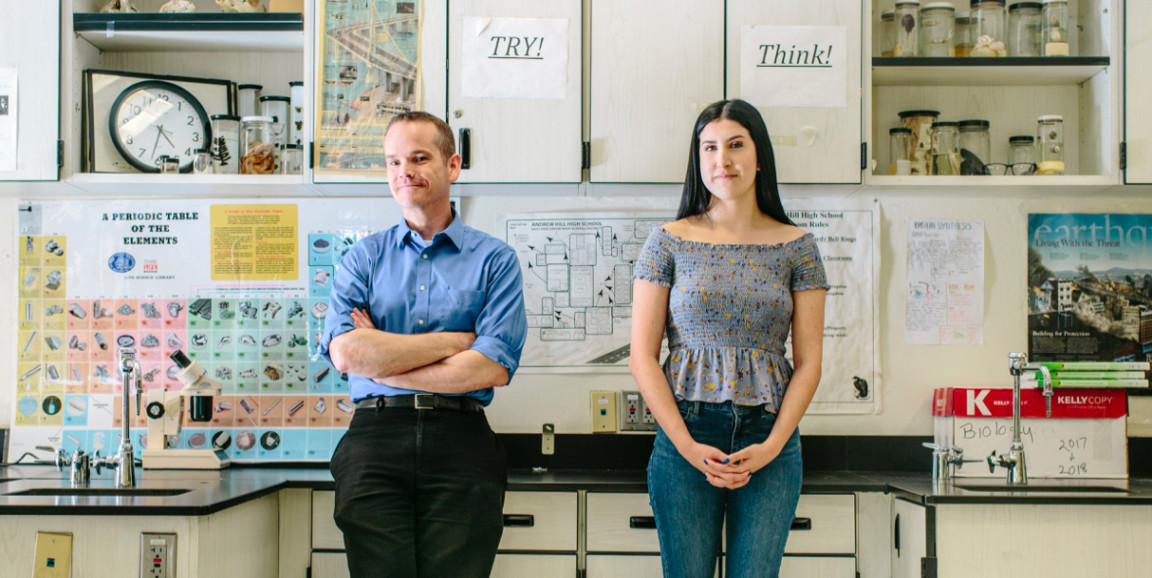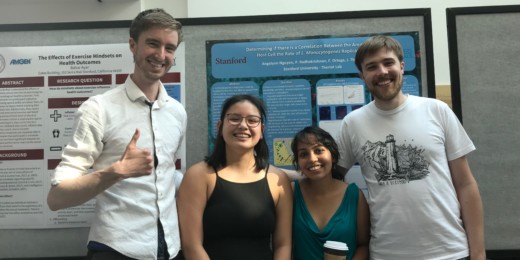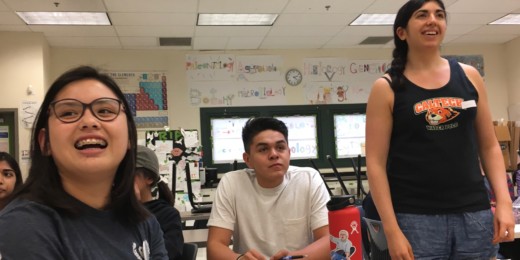Cooper Galvin remembers being inspired to become a scientist back when he was a high schooler in Alaska. Galvin, now a graduate student in biophysics at Stanford, was encouraged to follow his own interests, and was given the support and space to experiment, make mistakes, and try, try again.
At Stanford, he found that some of his classmates in biophysics also attributed their passion for science to similar self-directed, mentor-supported learning experiences -- and they all wanted to bring such experiences to high schoolers in the Bay Area who might not otherwise have such opportunities. They worked together with Patrick Allamandola, a science teacher at Andrew P. Hill High School in San Jose, to start a program there called FAST -- Future Advancers of Science and Technology -- in which Stanford graduate students in science volunteer as mentors in a Saturday program for students.
In my story for Stanford Medicine magazine, I wrote about one of those high schoolers, Brianna Rivera. Rivera, a junior at the time, showed up to FAST one Saturday afternoon in hopes of merely getting the support she needed to complete her science requirement in school. She wasn't interested in science, and didn't know anyone who was.
Over the weeks and months that followed, Rivera discovered in herself an excitement for science that transformed her sense of who she was and who she wanted to be. She even changed one of her social media usernames to "Biochemisbri."
"I became known by the whole school as the girl who loves science. I would have underclassmen come up to me like, 'Look, that's Biochemsbri!'" Rivera told me. "They would ask me questions about how to join this program, or would you recommend this program. I really credit FAST with me finding myself and what I want to do in my career."
As they do with all participants, the FAST mentors helped Rivera manage applications for summer science programs and college and introduced her to ethics and coding. This summer, she's finished her freshman year at San Jose State University, and will transfer to Boston University, where she was accepted as a bioengineering student.
In a video created about the program, Galvin, Rivera, Allamandola, FAST president Katie Liu and others talk about what makes the program so special:
Rivera became a champion of the FAST program, and Galvin saw her experience as exemplary of the good that can come to students who are given both the opportunity to follow their interests and the environment to try, fail, and try again -- a process that is almost inevitable in scientific discovery. He elaborated:
We need safe opportunities to fail and be celebrated for trying really hard. The potential of graduate students and all sorts of professional scientists to inspire the public to engage in science, follow curiosities, get messy -- no matter age, race, socioeconomic status -- is sorely untapped because many feel that is the job of professors and 'professional' educators.
Photo by Timothy Archibald






